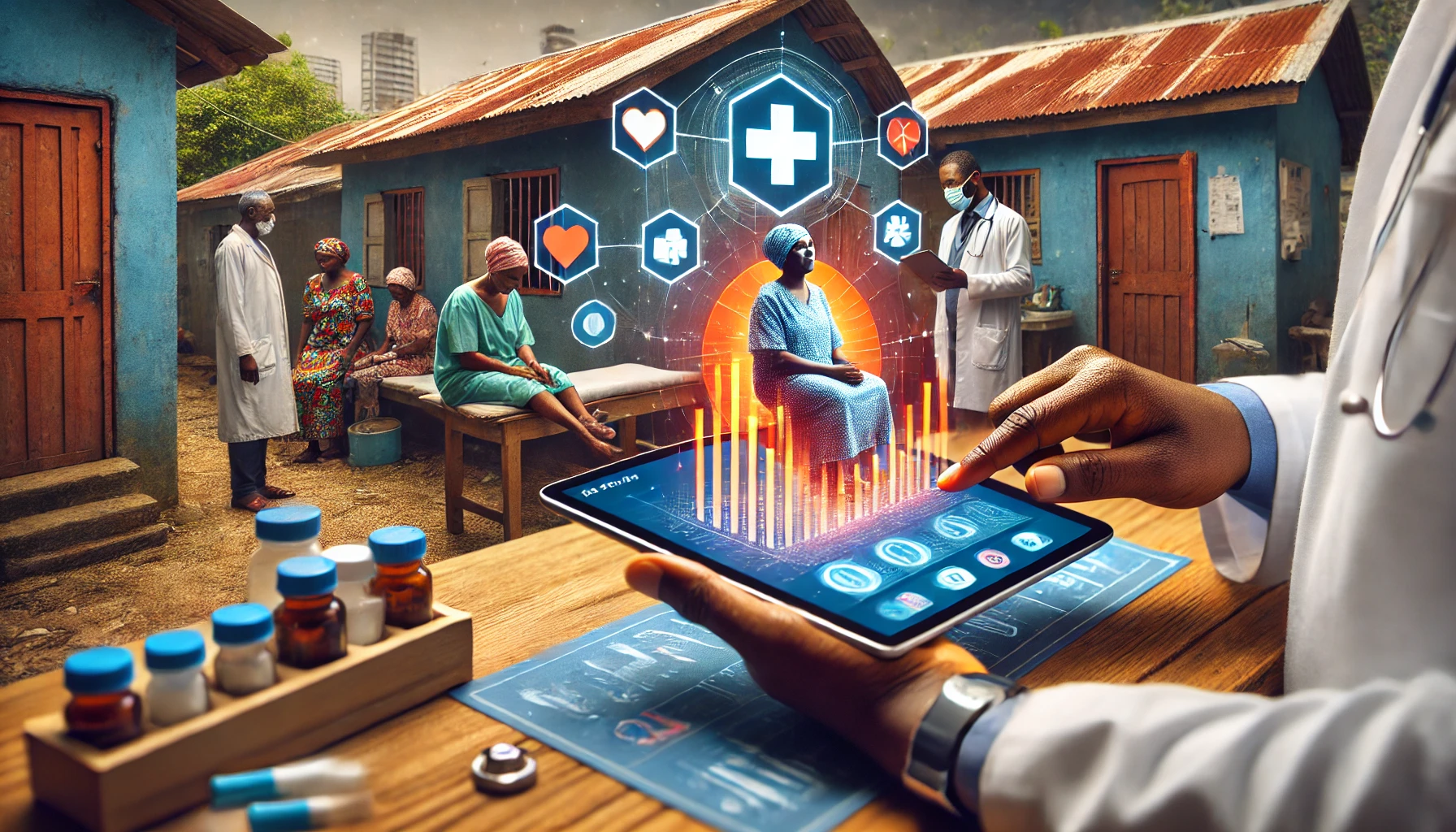Transforming Public Health in Lagos: The Promise and Challenges of mHealth Solutions
The study explores healthcare workers' perceptions of mobile health (mHealth) technologies in Lagos, Nigeria, highlighting their potential to improve efficiency and patient care in resource-limited settings. It emphasizes the need to address barriers like inadequate infrastructure, digital literacy, and funding to unlock the full benefits of mHealth.

The document, authored by scholars from leading institutions focused on healthcare innovations, examines the transformative potential of mobile health (mHealth) technologies in public health facilities in Lagos, Nigeria. Through an in-depth investigation of healthcare workers' perceptions, the research reveals how these tools could address critical gaps in healthcare delivery. The findings underscore both the promise and challenges of adopting digital solutions, particularly in resource-constrained environments, and call for collaborative efforts to enhance the effectiveness of mHealth.
A Game-Changer for Efficiency and Accessibility
mHealth technologies, including mobile applications, communication platforms, and data management tools, are seen as pivotal in improving the efficiency and accessibility of healthcare services. Healthcare workers in Lagos highlighted the ability of these tools to streamline processes, facilitate patient follow-ups, and enable real-time communication between providers. In environments with limited resources, mHealth offers innovative solutions to optimize service delivery and tackle systemic challenges, such as workforce shortages and inefficient data systems. For instance, the integration of digital tools into maternal and child health programs or vaccination campaigns could significantly improve outcomes and save lives.
Moreover, healthcare workers expressed optimism about mHealth's potential to enhance patient engagement and improve chronic disease management. By leveraging digital platforms, providers could maintain better communication with patients, ensuring they adhere to treatment plans and receive timely interventions. These technologies also hold promise for managing large volumes of patient data more effectively, reducing errors, and supporting evidence-based decision-making. Despite these advantages, the study acknowledges that realizing the full potential of mHealth requires addressing numerous obstacles.
Challenges in Infrastructure and Digital Literacy
While the benefits of mHealth are widely recognized, the study identifies significant barriers to its implementation in Lagos' public health facilities. Infrastructure issues, such as unreliable electricity supply and poor internet connectivity, were cited as major hurdles. These systemic challenges not only hinder the functionality of digital tools but also discourage healthcare workers from relying on them consistently. Without a reliable infrastructure, even the most advanced mHealth solutions risk becoming obsolete or underutilized.
Another critical barrier is the lack of digital literacy among healthcare staff. Many workers lack the necessary training to navigate and utilize mHealth technologies effectively. Training programs are often inadequate or unavailable, leaving a significant skills gap that undermines the adoption of these tools. Respondents also noted the absence of technical support systems, further complicating efforts to integrate mHealth into everyday healthcare practices. This lack of preparedness limits the ability of workers to fully leverage digital tools, thereby reducing their overall impact.
Funding Constraints and Sustainability Concerns
Funding emerged as another major obstacle in the successful deployment of mHealth technologies. Public health facilities in Lagos typically operate on constrained budgets, making it difficult to invest in the infrastructure, devices, and training necessary for implementing digital solutions. While some initiatives have been supported by external grants and donors, these funding streams are often short-term and inconsistent, leading to concerns about sustainability. Healthcare workers expressed frustration over the frequent abandonment of promising technologies due to resource shortages, which can erode confidence in future innovations.
The study highlights the need for sustainable financing models to support the long-term integration of mHealth technologies. Policymakers and funding agencies must prioritize investments in digital health to ensure that these tools are not only introduced but maintained and scaled over time. Collaborative approaches involving public-private partnerships could help pool resources and expertise to overcome financial challenges, enabling broader adoption of mHealth systems.
Unlocking the Full Potential of mHealth
Despite the challenges, healthcare workers in Lagos remain optimistic about the transformative power of mHealth technologies. The study underscores a growing willingness among staff to embrace digital tools, recognizing their potential to revolutionize healthcare delivery. Respondents suggested that with proper training and infrastructure support, mHealth could become an indispensable part of public health systems. The integration of these technologies could improve data accuracy, enhance patient outcomes, and address long-standing inefficiencies in service delivery.
To achieve this vision, the study advocates for a collaborative and inclusive approach to mHealth implementation. Policymakers, technology developers, healthcare providers, and funding organizations must work together to create an enabling environment. Investments in reliable infrastructure, comprehensive training programs, and sustainable financing models are essential to unlocking the full potential of mHealth. Additionally, tailoring solutions to the specific needs of local contexts can increase their usability and impact, ensuring that healthcare workers can seamlessly integrate them into their workflows.
A Call to Action for Sustainable Health Innovation
The findings of this research provide a roadmap for governments and organizations seeking to harness the power of mHealth technologies. By addressing the challenges identified in the study, stakeholders can ensure that digital tools are effectively integrated into public health systems, particularly in resource-constrained settings. This includes prioritizing investments in infrastructure and training, fostering public-private partnerships, and developing sustainable funding mechanisms.
The research also emphasizes the importance of involving healthcare workers in the design and implementation of mHealth solutions. By incorporating their feedback and addressing their concerns, developers can create tools that meet practical needs and improve usability. Ultimately, the study highlights the potential of mHealth technologies to transform public health systems, offering a path toward more equitable, efficient, and effective healthcare delivery. Through collaborative efforts and strategic investments, the promise of mHealth can be fully realized, benefiting not only healthcare workers but also the communities they serve.
- FIRST PUBLISHED IN:
- Devdiscourse










